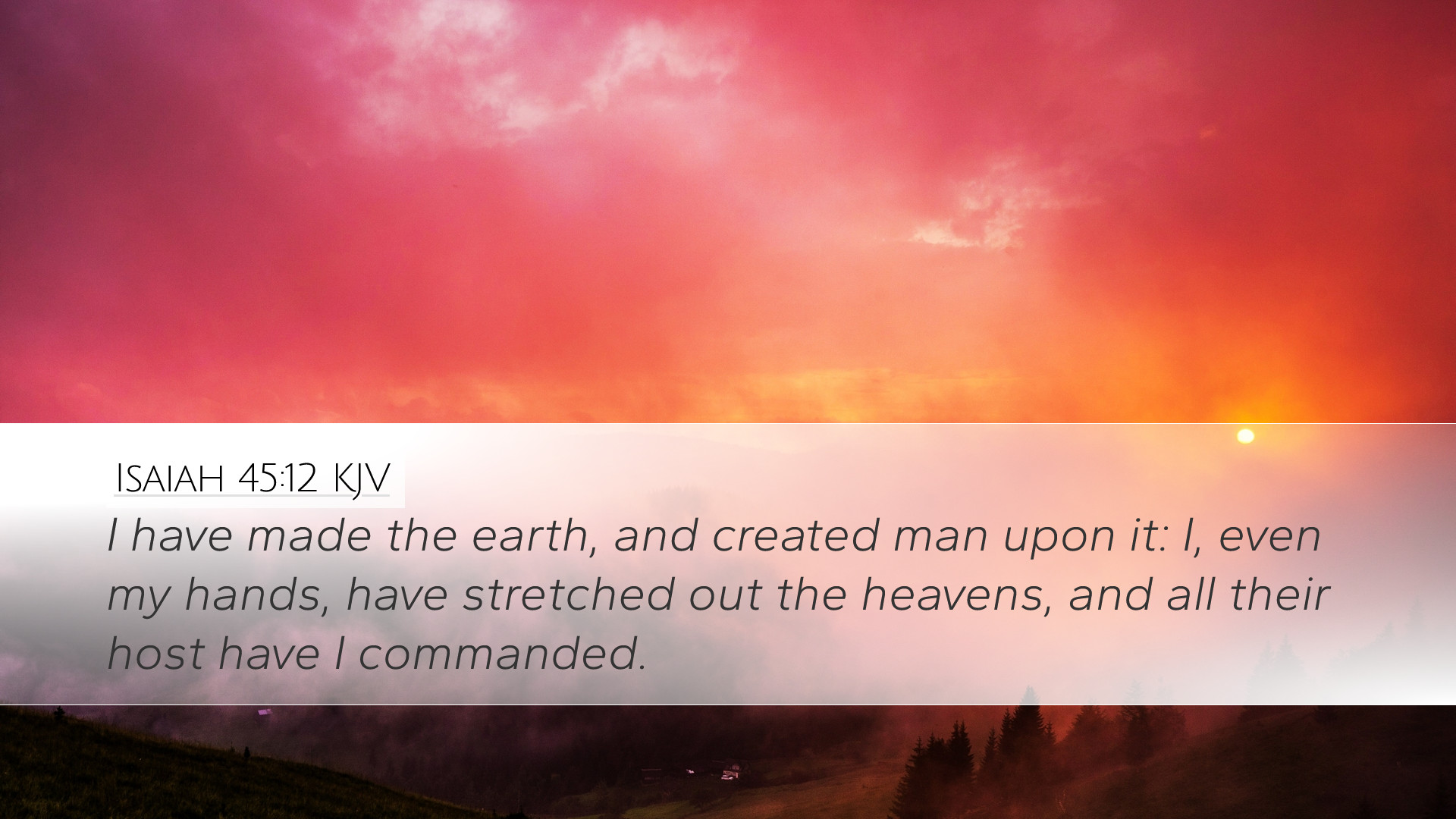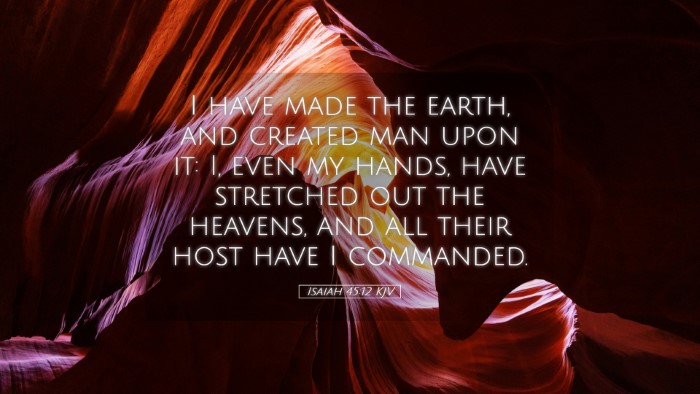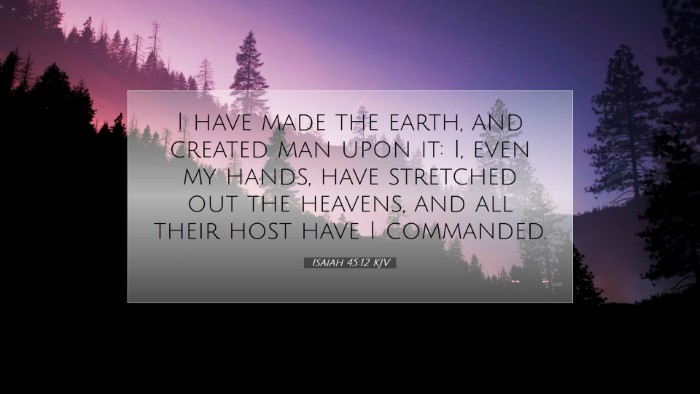Commentary on Isaiah 45:12
Isaiah 45:12 states: "I have made the earth, and created man upon it: I, even my hands, have stretched out the heavens, and all their host have I commanded." This verse emphasizes the sovereignty and creative power of God, conveying profound theological implications that resonate through centuries of Judeo-Christian thought. Below is a synthesis of insights drawn from renowned public domain commentaries.
1. The Creator's Authority
Isaiah emphasizes God's role as the Creator. Both Matthew Henry and Albert Barnes point out that God's assertion of creation underscores His supreme authority over all existence. In creating the earth and humanity, God establishes His dominion. Matthew Henry elaborates on this by stating that 'the greatness of God's power in creation is the foundation for His authority in providence.' This concept fuels a deeper understanding of God’s relationship with His creation.
2. The Purpose of Creation
Adam Clarke remarks that the creation of man is not merely a historical account but rather a declaration of purpose. Each human is created for a reason, to reflect God's glory, demonstrate His love, and fulfill His plans. It reminds believers that their existence is meaningful and integral to God's overarching narrative. This should instill a sense of responsibility to live according to God’s intended purpose.
3. God's Personal Involvement
The phrase 'I, even my hands' suggests God's personal involvement in creation. Matthew Henry highlights that this serves to illustrate not just the power of God but also God's intimate connection with His creation. He is not an abstract deity; rather, He is actively engaged in the life and sustenance of His creation, which provides comfort and assurance to believers.
4. The Magnitude of Creation
Isaiah's statement that God 'stretched out the heavens' invites reflection on the vastness of the cosmos. Albert Barnes comments on the 'heavens' as indicative of the grandeur of the universe, created by God’s command. This grandeur demands awe and reverence. Believers are called to recognize their place within this magnificent design and can draw encouragement from the knowledge that the same God who designed the universe is also deeply involved in their lives.
5. The Command of God
The concluding phrase 'and all their host have I commanded' speaks to the authority of God over the host of heaven, including celestial bodies. Adam Clarke notes that this aspect emphasizes God’s omnipotence over all creation. The ability to command the heavenly bodies highlights God's control over all elements of existence, further establishing the theme of His sovereignty, running congruently alongside the understanding of providence.
6. Implications for Belief and Practice
- Theology of Creation: Understanding God's role as Creator enriches the theological foundations for worship. It calls the faithful to acknowledge God's supremacy.
- Human Dignity: Recognizing that humans are created by God endows each individual with inherent value. This serves as a critical insight for social ethics and advocacy for human rights.
- Purpose in Life: Reflecting on our purpose as part of creation invokes a deeper commitment to living a life that honors God. It inspires both pastors and lay people to pursue divine mandates in everyday life.
- Environmental Stewardship: The acknowledgment of God as Creator imposes a responsibility to care for the earth, highlighting ecological stewardship as a biblical mandate.
Conclusion
Isaiah 45:12 serves as a profound reminder of God's creative power and authority. By synthesizing the insights from Matthew Henry, Albert Barnes, and Adam Clarke, we gain a multifaceted understanding of the verse, emphasizing God's relationship with creation and our purpose within it. This verse not only informs our theology but also challenges us to reconsider our responsibilities towards God, humanity, and the earth, marking its significance in the context of faith and practice.


